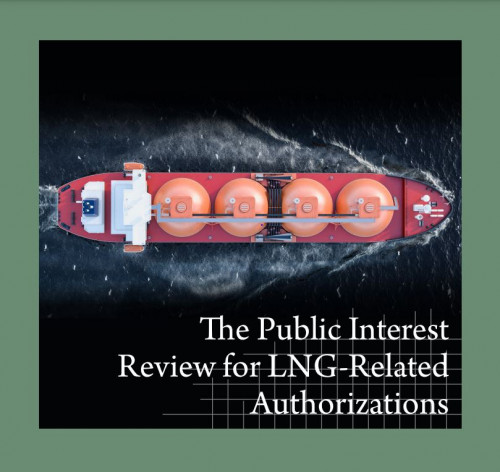-
Comments to DOE on Grid Resilience and Innovation Partnerships Program
We submitted comments urging DOE to clarify how it will distribute Infrastructure Investment and Jobs Act (IIJA) project funding and to enhance program transparency. We encourage DOE to more specifically detail how it will evaluate applications and to offer a more precise definition of what "community benefits" it hopes to achieve. We also suggest that DOE require project applicants to submit cost-benefit analyses so that the agency can better compare projects when making funding decisions.
-
Joint SC-GHG Comments on DOE Standards for Consumer Furnaces
Together with partner groups, we submitted joint comments to the Department of Energy (DOE) on its proposed rule to strengthen energy conservation standards for consumer furnaces. Our comments applaud the agency for appropriately applying the social cost of greenhouse gases to estimate the climate benefits of the proposed standards, even though the standards would be cost-benefit justified without considering any climate benefits. We also expand upon DOE's justifications for adopting a global damages valuation and for the range of discount rates it applies to climate effects.
-
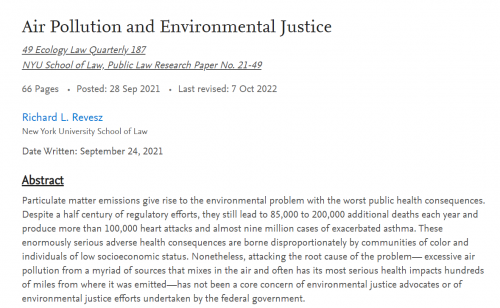
Air Pollution and Environmental Justice
Published in Ecology Law Quarterly
The article examines the failures of the U.S. Environmental Protection Agency to address the environmental justice harms from air pollution and identifies three recent development that could augur beneficial change.
-
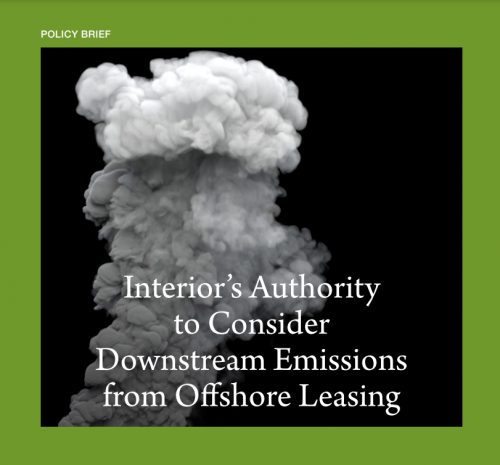
Interior’s Authority to Consider Downstream Emissions from Offshore Leasing
In its proposed Outer Continental Shelf oil and gas leasing program for 2023–2028, the Bureau of Ocean Energy Management (BOEM) claims that it cannot consider downstream greenhouse gas emissions when setting leasing policy because of a 2009 D.C. Circuit case, Center for Biological Diversity v. Department of the Interior (CBD). This Policy Brief explains that BOEM misreads CBD, which held only that the Outer Continental Shelf Lands Act (OCSLA) does not require the agency to consider downstream effects. The Policy Brief further explains that neither CBD nor any other case law bars BOEM from considering downstream effects and that consideration of such effects is in fact consistent with the text, legislative history, and regulatory history of OCSLA.
-
Comments to Bureau of Ocean Energy Management on Proposed Five-Year Offshore Leasing Plan
In July, the Bureau of Ocean Energy Management (BOEM) released its proposed five-year offshore leasing plan, which contemplates scheduling anywhere from zero to eleven lease sales over the coming half-decade. As part of that proposal, BOEM conducts a cost-benefit analysis in which it finds net benefits from offshore leasing, but recognizes uncertainty and specifically calls for comment on this analysis.
In response to this call for comments, Policy Integrity submitted two original reports offering extensive feedback on BOEM’s cost-benefit analysis. As detailed in those reports, BOEM’s analysis severely understates the costs of OCS leasing—particularly the climate costs. Our reports offer original analysis and modeling finding that, properly considered, the climate costs of offshore leasing alone may exceed the total benefits from that leasing.
-
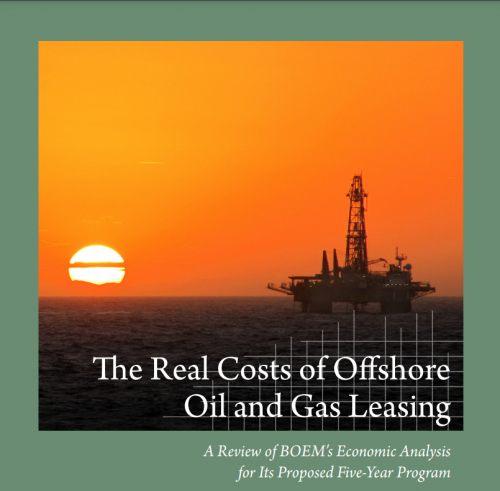
The Real Costs of Offshore Oil and Gas Leasing
A Review of BOEM’s Economic Analysis for Its Proposed Five-Year Program
In July 2022, the Bureau of Ocean Energy Management (BOEM) released its proposed Outer Continental Shelf oil and gas leasing program for 2023–2028. That plan contemplates holding up to 11 lease sales over the next five years, and conducts an economic analysis concluding that the benefits of those lease sales would exceed the costs. This report provides comprehensive feedback on BOEM’s economic analysis. As the report details, BOEM vastly understates the environmental and social costs of offshore leasing in several key ways.
-
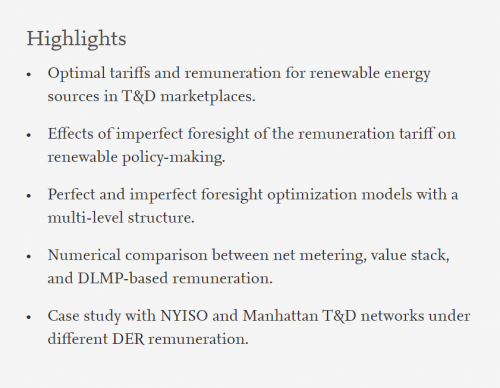
Impact of Imperfect Foresight on Optimal DER Deployment, Remuneration and Policy
Published in Applied Energy
This paper proposes a decision-making framework to optimize electricity tariffs and remuneration policy for renewable energy sources operating in transmission- and distribution-level (T&D) marketplaces. The authors develop perfect and imperfect foresight models with a multi-level structure to investigate the effects of the inability of actors to correctly predict future remuneration on the efficiency of the decisions made by policymakers.
-
Comments to Connecticut on Energy Storage and Emissions
The Connecticut Public Utilities Regulatory Authority (PURA) issued a straw program design for electric storage. We submitted comments that support PURA's efforts to make energy storage part of its overarching decarbonization agenda and provide feedback. It is important, as we explain, that PURA take into account the potential emissions consequences of energy storage operations in designing its performance-based incentive.
-
Richard Revesz Nominated to Lead OMB’s Office of Information and Regulatory Affairs
President Biden announced his intent to nominate Richard Revesz to serve as Administrator of the Office of Information and Regulatory Affairs within the U.S Office of Management and Budget. Revesz is AnBryce Professor of Law and Dean Emeritus at NYU School of Law, where he directs the Institute for Policy Integrity. He is one of the nation’s leading voices in the fields of environmental and regulatory law and policy. Revesz will take a leave of absence from the Institute for Policy Integrity during this period. Jack Lienke and Burçin Ünel will serve as Interim Co-Executive Directors of the Institute.
-
The Public Interest Review for LNG-Related Authorizations
After a meteoric rise in production over the past decade, the United States has become the largest exporter of liquefied natural gas (LNG) in the world. Yet, the analysis behind LNG terminal and export approvals overlooks climate and environmental justice impacts, despite promises of imminent reform. Policy Integrity’s new report provides a comprehensive look at the Department of Energy’s (DOE) and the Federal Energy Regulatory Commission’s (FERC) past practice in this space and offers recommendations for improving their review of the climate and environmental justice impacts of LNG approvals.






